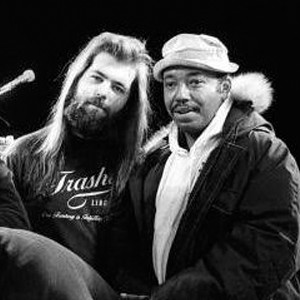
The Legends of Def Jam and the Story of Rick Rubin
By Rapstation Editor for Rapstation.com
With 33 years in the industry, Def Jam's catalog ranges all the way from its early years with LL Cool J and the Beastie Boys, to its present-day artists such as Kanye West, Ludacris, Jeremih, Pusha T, and the list goes on. Today we acknowledge the man behind the many faces brandishing the Def Jam banner, mr. Rick Rubin.
Def Jam's earliest accounts extend all the way back to Rubin's teenage years back in Long Beach, New York. In High School, Rubin acquired an affinity towards music after befriending the school's audiovisual director, Steve Freeman, who also offered Rubin lessons in both guitar and songwriting.
In his senior Year, Rubin unknowingly produced one of Def Jam's most ancestral recordings, using the school's four-track recorder. While maintaining those ventures, Rubin began transitioning more towards his band, Hose, which gained recognition in the local punk scene, and eventually toured through the Midwest as well as California. The band broke up when Rubin's passion transitioned to New York Hip-hop
It was through Zulu Nation's DJ Jazzy Jay that Rubin came to learn about Hip-hop, and in 1983, Rubin paired Jazzy Jay with T La Rock, and the output was Def Jam's first independent release, “It's Yours”, a critically-acclaimed rap single recorded entirely from Rubin's modest dorm room in NYU.
A year after, Jay introduced Rubin to a certain concert promoter named Russell Simmons, who inspired the idea of an imminent official recording label. Working together, the two recruited a young rapper from Queens, and this ultimately led to Def Jam's official debut, in the form of LL Cool J's hit-single “I Need a Beat” in 1984. That same year, Def Jam released the Beastie Boys' “Rock Hard”, and with both singles reaping tremendous success, the label eventually landed a deal with Colombia Records.
Although Def Jam's specific debut date has managed to elude historical accounts, perhaps its say to conclude that it exists through Rubin's earliest efforts, much like legends hold numerous interpretations. From his teenage years to college recording sessions, it's hard to believe that such humble beginnings would birth the Def Jam we know today.
Nevertheless, Rubin's persistence and the stories surrounding the label's founding make it safe to conclude that Def Jam has undoubtedly played an instrumental role in Hip-hop history--and its legacy lives on through the numerous artists under the Def Jam insignia.
By Jods Arboleda for RAPStation.com